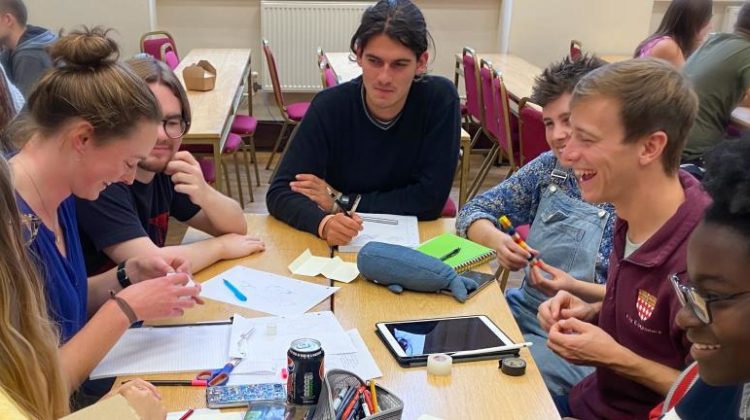
The University of Cambridge has announced the launch of a brand-new undergraduate degree that will merge arts and science in order to address some of the world’s most pressing challenges, including the race to net zero.
The first course designed from scratch at the university for several years, the four-year Design Tripos brings together architecture, engineering and materials science in a single degree.Featuring a blend of technical content and design freedom, the course will offer students a different kind of creativity and a new approach to tackling a variety of societal and environmental issues, including poverty and climate action.
As well as teaching the more hands-on elements relating to the practices of design, the course will also explore the ways in which design influences people, economies and the natural world, the four-year degree through problem-based learning projects. Studio work and practical skills, including drawing, writing, coding and fabricating, will complement taught courses in the humanities, social and natural sciences, and mathematics, bringing a historical, cultural, ecological and economic context to the practice of design.
‘It’s pioneering – we’re merging the arts and sciences under the umbrella of creativity and design, and constructing the course to be as open and interesting as possible,’ said Professor Michael Ramage, director of Cambridge’s Centre for Natural Material Innovation, and deputy head of the university’s Department of Architecture. ‘We don’t know of any other single degree course that brings these three subjects together like this.’
According to Ramage, delivering clean growth and a circular economy requires not just specific technical expertise but a holistic understanding of the world. The COVID pandemic response, he pointed out, is an illustration of how rapid solutions arise from the confluence of different fields.
‘Pressing challenges – such as achieving net-zero greenhouse-gas emissions by 2050 and reaching sustainable development for all – are likely to be addressed directly as design challenges, rather than as separate mathematical or engineering challenges,’ he said. ‘They don’t fit into a neat academic box; unlocking creativity requires collaboration and knowledge across a variety of disciplines.’
The first iteration of the course will begin in October 2024, with an intake of about 45 students. The Design Tripos is a four-year undergraduate, integrated Master’s degree. The set-up is similar to that of the current Engineering Tripos – students who complete three years will receive a Bachelor’s degree (BDes), while those who complete the fourth year – which will include the production of a specialist dissertation – will receive a Master of Design (MDes) degree. The MDes programme has been developed by the Department of Architecture in collaboration with the Departments of Engineering and Materials Science and Metallurgy, amid a growing desire among students in these fields to blend elements of the different subject areas. Most students are expected to complete all four years.
‘We know there is general interest among students to apply their education to global grand challenges, and particularly sustainability challenges, which can be met through design,’ Ramage said. ‘But it’s very hard to study across disciplines – there’s no way you can create a degree like this simply by taking classes from those three different departments, which are all in three different schools at the university. That’s why we’ve had to design the degree from scratch.’
The university hopes that the blended nature of the Design Tripos will appeal to a wide range of students. In particular, it hopes that it will help to address the current gender disparity in engineering and related fields. Over the past three years, fewer than 40 per cent of applications for degrees in engineering and the physical sciences at Cambridge have been from female students.
‘The Design Tripos will teach both the “know-how” and the “know-what” to help develop the next generation of pioneers and leaders in industry, public service and society,’ said Professor Graham Virgo, senior pro-vice-chancellor for education. ‘The course is aimed at students who are thinking about global problems and want to learn how they can do something to help. We also know that employers are increasingly looking for multidisciplinary knowledge and team-working skills, and so the Design Tripos also anticipates the hybrid jobs of the future.’



